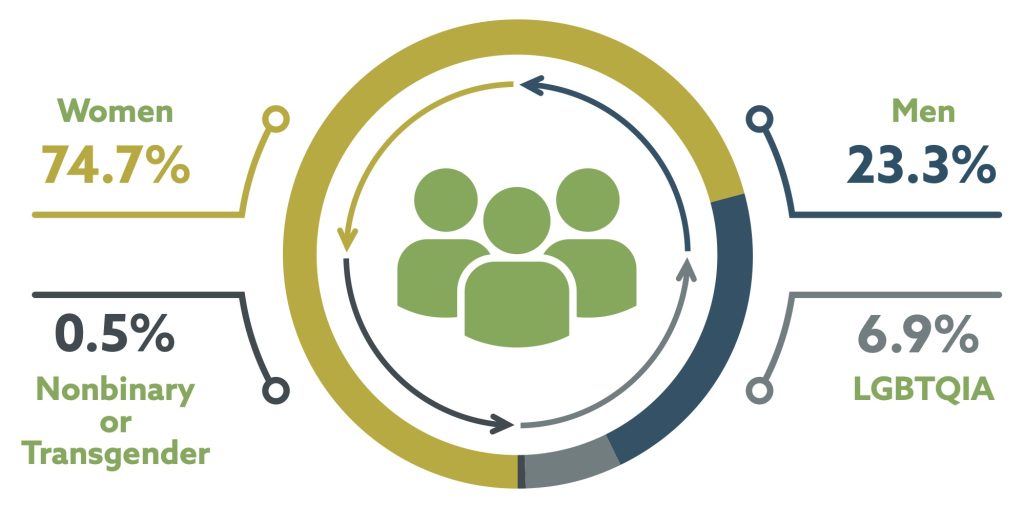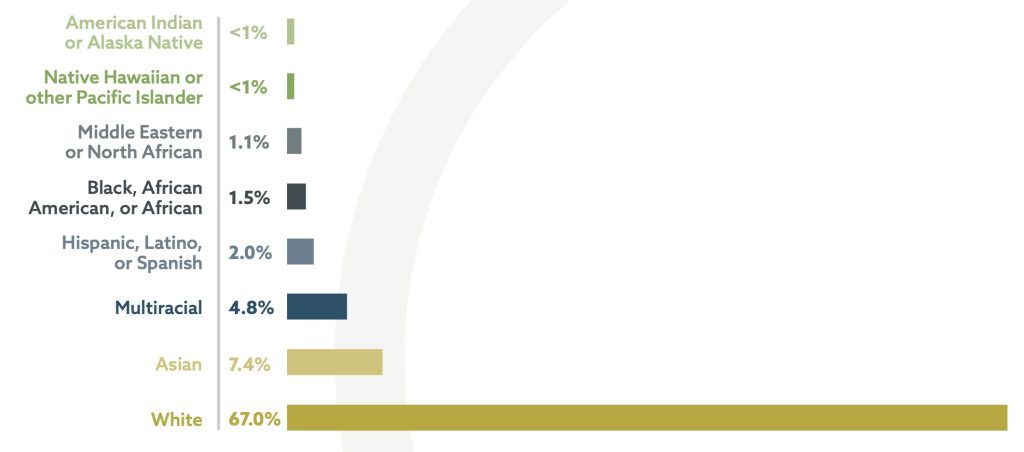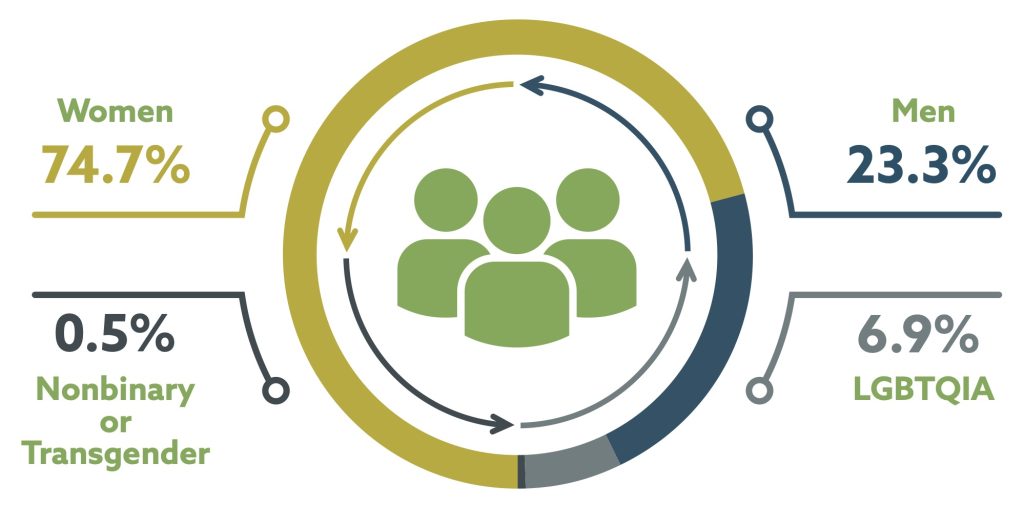Despite small gains in recent years, the genetics and genomics workforce lacks diversity. It does not reflect the make-up of students entering the workforce pipeline, nor the domestic and global populations it serves. The result reduces productivity, negatively skews research programs and outcomes, and falls short of realizing the business case or the justice case for diversity.
Prepared by the American Society of Human Genetics (ASHG), the “Human Genetics & Genomics Workforce Survey” shows that the majority of respondents in the genomics and genetics workforce were U.S citizens, identified as Women, identified as White, and were employed in a permanent position. The study concluded that the genetics and genomics workforce is insufficiently diverse, lacking equitable participation of underrepresented communities based on race and ethnicity, gender, disability, and economic background.

“Across the biomedical field, there is a need for expanding diversity of the scientific workforce,” said ASHG president Charles Rotimi, PhD. “The lack of diversity in the workforce impacts scientific innovation at every level along with global competitiveness and the ability to deliver new insights into human disease and health.”
Inequality for the underrepresented
Enduring gaps have hampered significant advancements in creating diverse research teams with equal access to jobs in research. To advance and ensure workforce diversity in genetics and genomics professions, associations, academic institutions, and corporate employers must collaboratively dismantle structural and cultural barriers unique to the industry.
The National Institutes of Health (NIH), academic institutions, and professional societies in the biomedical research community have been taking important strides to improve workforce diversity, resulting in a significant increase in PhDs earned by women and individuals from underrepresented groups. While progress is evident today, individuals identifying as Black/African American, Hispanic/Latinx, American Indian/Alaska Native, or Native Hawaiian/Pacific Islander still only account for ~14% of PhDs earned in the life sciences but account for over 30% overall. Despite gains made at the PhD level, underrepresented racial and ethnic minorities still comprise a very low percentage of academic faculty members, with only between 5 and 10 percent representation at the tenured professor level. This reduced representation at the faculty level exists even for well-represented White or Asian women.

The “Human Genetics & Genomics Workforce Survey” shows, consistent with STEM and biomedical fields, that the U.S. genetics and genomics workforce is predominantly a homogeneous group, with 67.0% of respondents identifying their race, ethnicity, or ancestry as White. Other self-reported races, ethnicities, or ancestries (17.5%) include Asian (7.4%); Black, African American, or African (1.5%); Hispanic, Latino, or Spanish (2.0%); Middle Eastern or North African (1.1%); American Indian or Alaska Native (<1%); Native Hawaiian or other Pacific Islander (<1%); and Multiracial (4.8%). In addition, 15.4% of survey respondents opted not to self-identify. Women comprised the majority of survey respondents, while 23.3% identified as Men and 0.5% as Nonbinary or Transgender. Additionally, 6.9% reported identifying as Lesbian, Gay, Bi-Sexual, Transgender, Queer, Intersex, Asexual (LGBTQIA).
This report by the ASHG is the first-of-its-kind study that provides the current comprehensive baseline data describing the demographic composition of the human genetics and genomics workforce in training programs and the workplace, based on a fielded survey of individuals identified from an alliance of professional genetics and genomics membership associations.
“This report represents a collaborative and critical step the genetics and genomics professional societies have undertaken to survey our field,” Rotimi said. “Successful and pioneering research relies on the talent of the research workforce, and the goal of this project is to assess the demographic landscape of the human genomics workforce and the factors affecting diversity, equity, and inclusion in the field. Our field is only as strong as the individuals that contribute to shaping frontiers and maximizing the benefits of this science.”
Breaking through the homogeneity
With greater diversity, equity, and inclusion, genetics and genomics would benefit from wider perspectives and experiences and increased competency to engage diverse communities in research. The impact of this underrepresentation is critical to understand, given the imminent transition toward a non-White majority in the United States.
The report provides suggestions for improving diversity, equity, and inclusion in the genomics and genetics workforce:
- Adopt racial equity goals related to post-secondary training policies, career pathways and credentials, job-driven and need-based financial aid, tuition and pay equity, and inclusion for immigrants; develop interrelated plans and systems to support them.
- Remove core structural barriers tied to financial equity, job access, preparation for job opportunities, and barriers inherent in recruiting, hiring, and promotion practices.
- Invest in infrastructure that helps academic and corporate organizations identify, publicly share, and advance goals; incentivize impact and process.
“Increasing the diversity of the genomics research workforce begins with understanding the composition and underrepresentation of groups within the current workforce,” said Vence Bonham, NHGRI deputy director and acting head of NHGRI’s Training, Diversity and Health Equity Office. “NHGRI is proud to support this examination into the current state of the genomics workforce and to look to ways to enhance the diversity of researchers and clinicians, including those from underrepresented groups. This is a milestone report that illuminates the disparities and inequities within the genomics workforce.”







